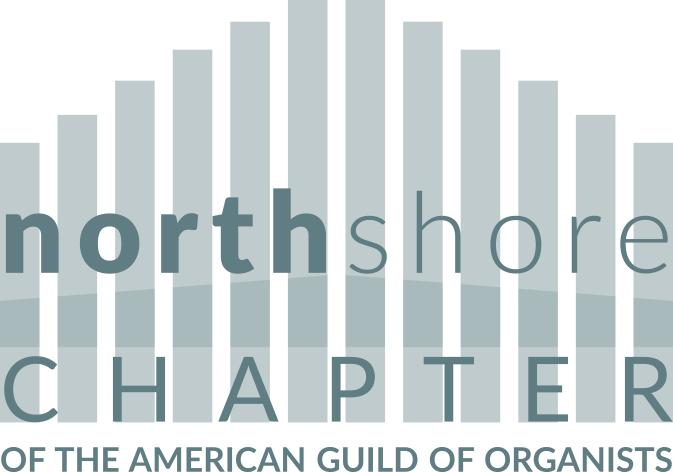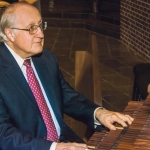Music has always been at the center of Christian worship, and before that, in the Judeo temple liturgical tradition. You would then expect that pastors, priests and rabbis would have opportunity for a close working relationship and a collegial friendship with their musicians and are  mutually dependent on each other. While that would seem to be obvious, in reality tensions and miscommunications do arise and are often left to fester without resolution. As a result, worship may suffer.
mutually dependent on each other. While that would seem to be obvious, in reality tensions and miscommunications do arise and are often left to fester without resolution. As a result, worship may suffer.
To address that reality and provide tangible and practical ways to help both clergy and musician to resolve difficulties and maintain a healthy relationship, the North Shore Chapter of the AGO sponsored a panel discussion on February 22 that raised a provocative question: Are clergy and musicians rivals or teammates?
Held at St. Giles Episcopal Church in Northbrook, the discussion was moderated by Rev. David Handley, an ordained Presbyterian pastor for over forty years, serving twenty-six years as senior pastor of the First Presbyterian Church of Evanston. Other panelists included Rev. Cynthia Hallas, rector of the host St. Giles church and accomplished vocal soloist; theologian Dr. Joseph Fitzer, former professor of church history and experienced organist/choirmaster in several churches; Rev. Arthur Nelson, longtime pastor at Winnetka Covenant Church, regional leader in “Ministry Mentors” and author of Prayers Public and Private; and Dr. Joyce Robinson, musicologist, author, accomplished organist and editorial director of The Diapason magazine.
over forty years, serving twenty-six years as senior pastor of the First Presbyterian Church of Evanston. Other panelists included Rev. Cynthia Hallas, rector of the host St. Giles church and accomplished vocal soloist; theologian Dr. Joseph Fitzer, former professor of church history and experienced organist/choirmaster in several churches; Rev. Arthur Nelson, longtime pastor at Winnetka Covenant Church, regional leader in “Ministry Mentors” and author of Prayers Public and Private; and Dr. Joyce Robinson, musicologist, author, accomplished organist and editorial director of The Diapason magazine.
Rev. Handley opened by sharing three points that he felt were particularly significant in building a strong relationship between clergy and musician:
- A shared faith experience, including personal spirituality and commonality in theological understanding
- A connection to the historical church and an appreciation that encourages mining the rich resources of liturgy and music from ages past
- An openness to new music. While grounded in the liturgy and hymnody of the historic church, the musician must be flexible and open to new musical expressions that are relevant to the present day.
Other concerns and emphases coming from the group discussion included the need for:
- clear and ongoing communication, such as weekly collaborative, face-to-face worship planning
- forging collegial friendship—getting to know one another on a personal level
- the musician to be theologically and liturgically knowledgeable
- for both clergy and musician to see the musician’s role as pastoral, not merely performance
- the musician to see that their highest duty is the enlivening of congregational song
- clergy to welcome and appreciate input from the musician
- avoiding conflict based on competing egos
- the church to have a process and guidelines for resolving conflicts
- recognizing two main causes of friction as feelings of insecurity and mutual ignorance of pastors’ and musicians’ priorities.”
The discussion was far-ranging, the panelists excellent, the moderator skillful, and the attendees knowledgeable and engaged. Dr. Fitzer highly recommended three books that would be helpful to both clergy and musician:
- Rivals or a Team? Clergy-Musician Relationships in the Twenty-First Century by Eileen Guenther
- The Toxic Congregation by G. Lloyd Rediger
- Spiritual Marketplace by Wade Clark Roof
A convivial time of food and fellowship concluded the afternoon.
Royce Eckhardt, Board Member

